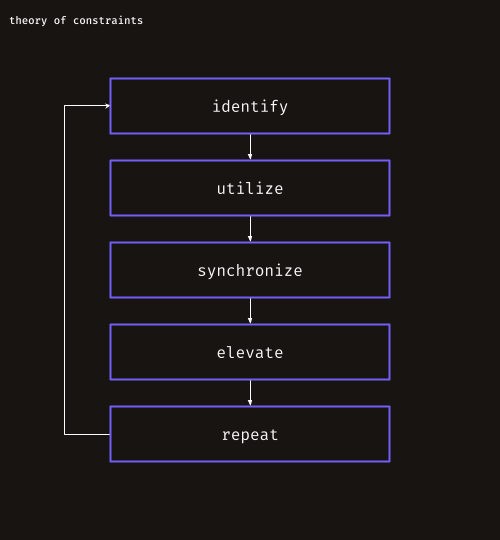❯ Strategy Lessons from Games: Civilization 6
Category: Business
Series: Strategy Lessons
Everyone wants to be a strategist. It's viewed as a proxy for intelligence. True or not, most job functions place an increasing importance on strategic skills to progress. Yet, opportunities are naturally limited. Strategy is inherently constrained by position and organizational design. What gives here? How do we practice the craft?
Cue Games. Hades to Wingspan, Civilization to Soccer, they are the perfect playground for leveling up strategy skills. Competition, resource management, disparate and distinct choices, changing environments, and execution... all present in games with strong parallels to real strategy work.
So, what lessons in strategy can we learn from games and apply to work?
Let's continue the series with Civilization. The sixth entry in the franchise leads the 4X genre. Each game starts with throwing stones in 3000 BC and ends somewhere around 2050 with cybernetics and AI. Chase victory in militaristic domination, subtle diplomacy, siloed science, territorial culture, or influential religion. Fifty playable civilizations control units, cities, and continents to win.
Here's my lessons learned from a few too many one-more-turn nights:
DOMAIN IS KING & MARKET IS QUEEN: KNOWLEDGE
I went in blind to Civ 6, unaware of much beyond the general idea: play as a civilization, advance, and win. I didn't realize the scope and complexities this game held. Managing resources, tech trees, governments, cities, and units while dealing with aggressive opponents and limited landmass led to a rough game with Rome. And Greece. And Egypt. By the time I booted up a fourth round with Portugal, I started to get the hang of it.

What was missing from the first three playthroughs? Domain knowledge. Like most games, I skipped the tutorial to get to the action. I shouldn't have. Domain Knowledge is understanding the set of rules behind a system: the standards, operations, financials, and challenges of a particular game (or industry and company). Once I understood how the systems worked together, I could lean into it for better advantages. Portugal's trade route bonuses meant I could buy my way into a science victory, for example.
Knowing the domain gets you further quicker. It leads to more effective strategies and execution. The latest work coming out of Amazon R&D includes injecting domain knowledge into language models (AI) for increased performance. Carnegie Melon highlighted its importance for data science and machine learning work. Understanding the rules and dynamics of the domain means better decisions in the short-term for long-term success.
Married to domain Knowledge is market knowledge—the understanding of the external landscape. One game as America was helped along by using spies and alliances to keep an eye on where other players were expanding. Deep comprehension of the market (and customers) keeps strategy sharp and realistic. Innovation becomes table stakes becomes obsolete, and so it was helpful to always scan outside my walls to creatively use the landscape for my advantage and keep an eye on the competition's progression.
In the real world, market knowledge has multiple levels: economy, industry, and category. Each has a different level of influence of on your business. Economic change will boost (growth) or limit (decline) overall output. An industry contributing significantly to economic growth means more money, opportunity, and competition. Mature categories feature less risk. It's really quite fascinating, with endless permutations.
Example Domain-Market-Customer Questions:
Domain knowledge: Understanding the company and craft.
- Look at financial statements. What observations and insights stick out?
- How does the company make a profit or otherwise fulfil their mission?
- How does your role, team, department contribute to making profit?
- What strategic initatives are underway, and what bets are being made for the future?Market knowledge: Understanding competition and landscape.
- Look at financial statements across companies. What trends and insights stick out?
- How has the competition evolved over the last few years?
- What is in the competition's product portfolio and their 4Ps?
- Where is the economy, industry, and category headed for existing products and innovation?Customer knowledge: Understanding consumer needs and experience. This is missing from Civ6, but including it here to be comprehensive.
- What do we know about our customers?
- What drives their behaviors and beliefs?
- What does the customer journey look like from their perspective?
- Where can we improve marketing funnel and customer experience?
HOW STRATEGY GROWS: EXPANSION
The best way to succeed in Civilization 6 is by expansion, the number of cities a player has. The game rewards going “wide” with more cities versus playing “tall” with fewer cities. I tried a few games of tall. Less complexity should lead to victory, right? The simplicity ended up losing out on the capacity to compete. The rate I was producing units, gold, buildings, and technology simply fell behind.
I didn't have the resources to win against the competition.
Enter How Brands Grow. And perhaps more specifically maximizing physical availability. Despite Byron's polarizing approach, I respect his research and saw it play out in Civilization 6. Quite simply, the more physical availability I had (in the form of cities), the more resources I obtained. More resources led to more physical availability and so on. It became the foundation behind many winning strategies.
There were limits of course: expansion at all costs meant cities revolted. Expansion must be balanced so that it doesn't irreparably damage activity, relationships, or financials. Academics and practitioners argue HBG isn't the only way to succeed. I tend to agree. My 0.02c: it's a pendulum, but easier to err on the side of expansion.
LAYERING, NOT FUNNELING: EXECUTION
Here I sat as Marcus Trajanusr, leading Rome towards victory. I followed one method: military might. Rush to Legion, grab Archers, and aggressively start battling others. It worked until pretty well—until Musketmen entered the scene. Apparently the blade doesn't stand up very well to the gun. My time as Roman commander ended shortly after.
I soon learned there were activities that worked better when connected to other specific activities. The whole was worth more than the parts. Military and Production, Culture and Tile Management, Science and Merchant. Suddenly, my strategies moved from brittle to flexible. Chasing only one focus was impractical. It left me vulnerable and sooner or later caught up to me. After this clicked, I stopped losing games.
I began to layer activities on top of each other, instead of funneling them towards a singular pursuit. Each city had a purpose (sometimes drastically different) but all of them leaned into those predefined activities. Some of these strategies had a naturally higher difficulty to execute well; diplomatic victory strategies, for example. There were less players chasing the same win condition, meaning less competition.
The business parallels may speak for themselves here. Layer products and activities together for a resilient business, department, or team. Learn to manage chaos. Flexibility enables responsiveness. Take a look at the Theory of Constraints for efficient processes and production. Expertise or capital requirements can mean a smaller arena.

These days, I don't play much Civilization 6. Yet, I'm still applying those lessons in my own work. The best strategists succeed by investing in domain and market knowledge, through expansion, and layering execution together.
Snapshot:
We've reached the stage of big emotions. Tantrums and tears sit back-to-back with hugs and I love yous. It's walking on eggshells: tiny human edition. Someone once told me no one accidently stays married, that it is an intentional choice to do so. I believe the same is true for parents. It's a choice to lean in, not lean out. To find gratitude instead of annoyance. To choose to be all in. Through all the ups and downs, the days that are more chaos than calm, I will choose joy when calling you son.
Striving for better,
Justin Pichichero